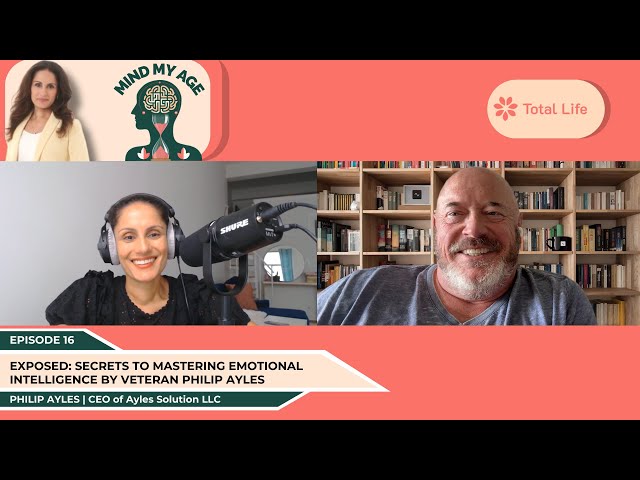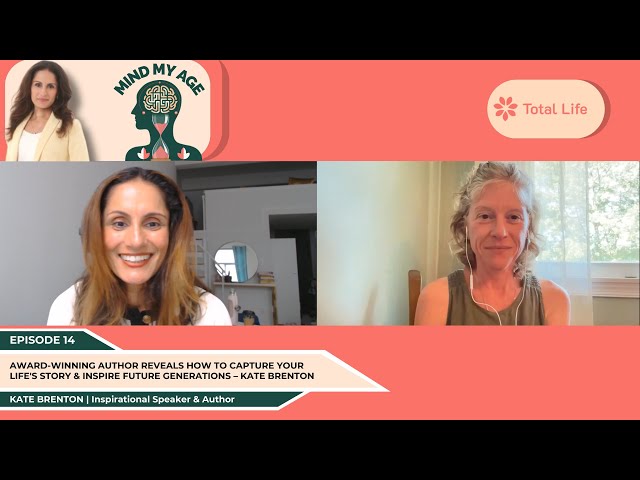In a recent episode of the Mind My Age podcast, Neelam Brar sat down with Philip Ayles, a renowned expert in emotional intelligence, particularly in supporting veterans transitioning to civilian life. Ayles shared his personal journey and professional insights, providing listeners with valuable lessons on navigating the complexities of life changes through enhanced emotional awareness.
Harnessing the Power of the Mind
At the core of Ayles’s philosophy is the belief that the mind holds profound power over both physical and mental well-being. “Age is just a number,” Ayles remarked, illustrating his perspective on the symbiotic relationship between mind and body. “When they’re not in alignment, you’re out of whack,” he noted, emphasizing the importance of achieving balance to foster resilience and vibrancy.
The Challenge of Transitioning
Philip Ayles, a veteran himself, knows firsthand the challenges of transitioning from military to civilian life. He explained, “I needed to find out who I was because I knew how to work in chaos.” Ayles described the importance of self-awareness, highlighting that “trauma is always there; it’s how you define it” that truly matters. He encouraged focusing on positive outcomes, suggesting that shifting perspective can cultivate inner strength and promote health.
Emotional Intelligence as a Transformative Tool
Throughout the discussion, Ayles emphasized the transformative power of emotional intelligence. His journey of self-discovery began upon realizing “I had no emotional intelligence” during his early days as a civilian. Recognizing the deficiency, he turned to education, such as reading Daniel Goldman’s “Emotional Intelligence 2.0,” to expand his understanding. For Ayles, “awareness, listening, and control” are key components for veterans seeking to improve their emotional intelligence and successfully navigate life changes.
Stories of Transformation
Ayles drew on his experiences working with veterans, recounting powerful stories of transformation where emotional intelligence played a pivotal role. One client grappled with personal and professional turmoil, yet by embracing self-awareness and action, he was able to repair relationships and regain health. Ayles highlighted, “He stopped, got his health back, and focused on the root cause of everything.”
Practical Tools and Daily Rituals
For Ayles, practical applications of emotional intelligence begin with gratitude. “Gratitude that I’m better off than I was yesterday,” he shared, emphasizing daily reflection and positive communication. He advocates for living in the moment, with practices such as learning something new every day and indulging in fulfilling activities.
A Call for Openness to Therapy
Recognizing the stigma attached to therapy, Ayles underscored its benefits. He advocated for therapy as a resource for guiding emotional healing, asserting, “Therapy has its place in our world.” Acknowledging that each step toward opening up can be daunting, Ayles urged listeners to “wake up and show up” every day, emphasizing the power of effort and attitude.
Charting the Future with Courage and Community
Philip Ayles left listeners with an empowering message of community and self-discovery. “You’re not alone,” he emphasized, encouraging those struggling with transitions to seek out the vast network of veteran support resources available. For Ayles, stepping into a new chapter of life requires the courage to prioritize personal goals and embrace new challenges.
Through his journey and expertise, Philip Ayles illuminates the path for veterans and individuals facing life’s transitions, offering a guiding light on the transformative power of emotional intelligence. As Mind My Age continues to explore the intersections of mental strength and well-being, these conversations remain a vital resource for anyone seeking to thrive in the face of change.









